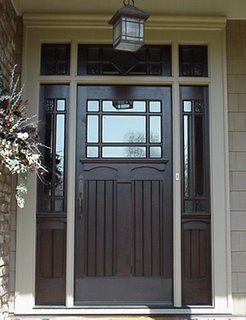
Smart Home buyers should ask important questions before purchasing. The better informed the buyer is, the greater the odds the sale will close and the home will be a long-term, satisfying purchase. Every Homeseller should know their answer to these tough questions smart buyers ask.
Why are you selling your home?
The reason it is important for buyers to know why the seller is selling is to determine how flexible and motivated the seller will be. Many buyers are shocked to discover how many listing agents either don't know the seller's true reason for selling, or they pretend they don't know.
Sometimes, it is none of the buyer's business why the seller is selling, such as a divorce or family problems. But often, it is vital for the buyer to know the true reason, such as when there is a pending foreclosure and the buyer must complete the purchase before the sale deadline.
Favorite reasons for a home sale that I love to hear are:
"The seller is retiring and moving to another state." (Meaning: There is an excellent chance the retiree seller will carry back a first or second mortgage for extra retirement income.)
“The seller has been transferred to another state.” (Meaning: Highly motivated and flexible)
“The new home the seller is building is ready to move into.” (Meaning: If the seller doesn’t sell their old home quickly, they will be making two mortgage payments.)
“We inherited the property.” (Meaning: Usually motivated, and often, they made little to no cash investment in the property.)
How did you determine the asking price?
Smart home sellers and their listing agents set the asking price based on recent sales prices of nearby comparable homes. But some home sellers, and their agents, set their asking prices based on their purchase price, plus capital improvements,, plus inflation, or some other nonsense method that bears no relationship to actual market value. Still other sellers irrationally set their asking price at the total cash they need to pay off their mortgage(s) and other debts.
Home sellers don't realize most buyers are not dummies. Buyers usually know the details about competitive homes, which sellers haven't even inspected. Serious buyers need to ask how the price was established to determine if it is realistic or plucked from the air.
What price did you purchase this home for?
The reason for this question is to get a feel for how much equity and negotiation room the seller may have. If the home was purchased many years ago at a price far below today's value, the seller may have more room to negotiate. However, if the purchase price was close to today's current market value, then the seller will usually be inflexible negotiating the price and terms.
Occasionally, the seller has overpaid for a home at the time of purchase or the market has dropped. This is especially true for luxury homes for with limited buyer demand. Overpriced homes often languish on the market until the seller becomes motivated to sell, even if it's a loss.
If the home seller or the listing agent refuses to tell a serious buyer the purchase price, it is still possible to discover this information at the county recorder's office. Another source is the local tax assessor or the tax collector's office. Depending on how local property taxes are established, the purchase price will usually be part of the official records. Many cities and counties now have this information available online.
What home defects have you reported on the disclosure statement?
Many states, by law, now require home sales defect disclosure statements to prevent future lawsuits. Even in states where written disclosures are not required, smart sellers and their agents voluntarily provide seller disclosures to prevent future legal problems.
Savvy home buyers need to know the defects the seller is aware of, before making a purchase offer. Of course, always provide a contingency for the buyer's approval of their professional inspector's report in your offer, just in case the seller "forgot" to reveal any defects.
If the buyer's purchase offer contains an inspection contingency, and the subsequent inspection reveals unexpected defects, the buyer has several choices: (a) a repair credit can be negotiated with the seller, (b) the buyer can cancel the purchase and obtain refund of the good faith deposit, or (c) proceed with the home purchase anyway.
Note: Home buyers, and their buyer's realty agent, should plan to attend their inspection in order to see and discuss any problems discovered.
Are you aware of any development or zoning issues that may affect this home?
The listing agent, home seller and the buyer's selling agent should be aware of any significant facts that might affect the home. Any plans such as a nearby airport that has a flight path over the home or a planned street-widening project that will take some of the front yard away may be important to know before you make an offer.
Conclusion: Serious buyers ask serious questions to determine the seller's situation, the condition of the property, why the seller is selling and future plans that may affect the home. Although no home is perfect and every property has drawbacks, the answers help insure that the buyer will have a happy, long term experience with the home after they close.














